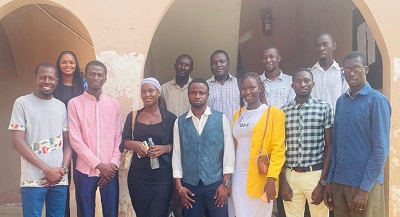By: Dawda Baldeh
As part of their three months pilot project dubbed “Innovate to Combat Irregular Migration”, the Media Academy for Journalism and Communication (MAJaC) has earlier today, August 14, 2023, engaged media practitioners on how they can help in combating irregular migration.
The day-long workshop convened media workers from various outlets to discuss the underlying reasons for irregular migration and offer recommendations to the academy for addressing the issue.
Mustapha Ceesay, the Project Coordinator, underscored the significance of engagement with the media as part of the project component. He said the media and related fields have a key role in combating irregular migration.
The three-month project aims to combat irregular migration by providing MAJaC with first-hand information and training suggestions from CSOs, migration organizations, NGOs, and international organizations.
Officials said they plan to engage youth and media for a comprehensive three-year project promoting youth and citizen participation in change-making, innovation, and entrepreneurship.
They said the objective is to find out how innovative training programs can help address the causes of irregular migration which include poverty, unemployment, and low salary scale among others.
“Irregular migration is an issue that needs to be addressed as a lot of people have travelled and some are media workers.
“The project has skill development training for media-related fields in film and photography, videography, communication. With these skills, people can be self-employed.
“People can set up their communication consultant companies and get paid by doing consultancy for others,” Ceesay told journalists.
He revealed that young people in the media and related fields need to be empowered to change the status quo. Mr. Ceesay added that the project will help equip journalists and media-related fields with knowledge and skills to be self-employed in the areas of film, photography, and communication.
He believes with such skills people don’t need to embark on irregular migration because they can employ themselves.
At the end of the project, MAJaC and partners are expected to come up with a proposal with information gathered to develop a document and seek approval for a project that will run for three years.
Participants, Paul Steven Priererra and Seedy B. Kanyi, commended MAJaC and partners for coming up with such an initiative, saying it will help people to understand the risk involved in embarking on irregular migration.
They described training journalists on migration issues will help them in their daily reporting. Paul suggested that MAJaC engage other government institutions and migrant returnees to share their stories to help portray migration in a better way.
Paul further urged the government to support the project and create employment for the young people who often embark on the irregular migration route.




